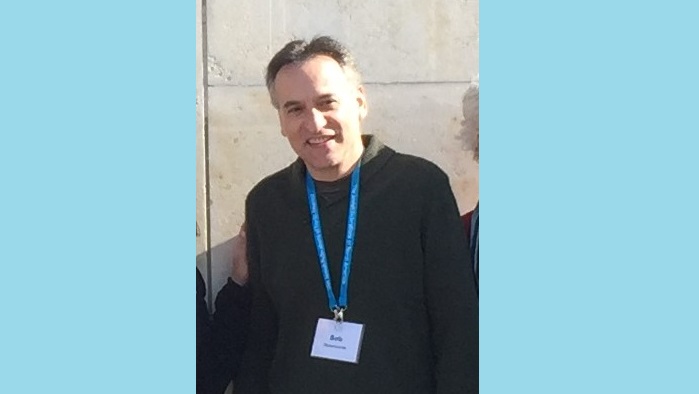
I have often argued that the anti-Israel Boycott, Divestment and Sanctions movement is anti-Semitic in effect if not always in intent. After all, in the view of most BDS leaders, the Jewish people have no right of national self-determination. For them, all of pre-1967 Israel is occupied Palestinian territory, and the Jews are foreign colonialists. Their strategy is to brand Israel as a pariah state and challenge the moral legitimacy of its very existence.
But what about those who view boycott and divestment campaigns as a peaceful, nonviolent strategy to bring about a change in Israel’s behavior – i.e., who believe (naively so) that BDS is simply about protesting what they consider to be Israel’s “illegal occupation” of the West Bank? How should the organized Jewish community respond to them?
Those of us who work in the American Jewish community relations field are familiar with these relatively moderate BDS activists. They don’t hate Israel; rather, they detest Israel’s right-wing government. They don’t condone Palestinian terrorism but regard the Jewish settlements as the main obstacle to peace. They are the Presbyterian pastor with whom we collaborate to fight poverty, the progressive Jew who sees BDS as the “sole recourse” to force Israel to end the occupation, the idealistic college student who’s drawn to ostensible human rights causes.
Perhaps unwittingly, these BDS backers shield the movement from allegations of anti-Semitism and provide it with a veneer of undeserved legitimacy. And that’s precisely the reason we can’t ignore them. On the contrary, we should challenge them to rethink their support for BDS by demonstrating that the movement’s hateful rhetoric and tactics are antithetical to their own core values – values that we share despite our disagreements about the Israeli-Palestinian conflict.
Take free speech, for instance. The organized Jewish community has long been a steadfast defender of freedom of speech, even offensive speech. Now BDS groups, in their efforts to defeat federal and state anti-boycott legislation, invoke free speech, claiming (erroneously) that these laws would infringe on their constitutionally protected right to criticize Israel or its policies.
In fact, whereas BDS proponents remain totally free to malign the Jewish state, it’s the anti-Israel protesters who regularly attempt to deny Israel advocates their freedom of speech, especially on college campuses where robust debate and the free exchange of ideas should be the norm.
In February, for example, a pro-peace event at the University of Virginia called “Building Bridges” and featuring Israel Defense Forces reservists was disrupted by pro-Palestinian protesters who surrounded the speakers with Palestinian flags and shouted anti-Israel slogans into a megaphone. Shouldn’t fair-minded students who support BDS merely as an expression of opposition to Israel’s settlement policy be troubled by such outright hostility and rank hypocrisy?
In a similar vein, how can pro-BDS Christian clergy who preach tolerance and coexistence from the pulpit remain silent when criticism of Israel morphs into blatant anti-Semitism? Consider Roger Waters, the former Pink Floyd frontman and one of the BDS movement’s most outspoken advocates. Waters routinely pressures fellow musicians to cancel their upcoming concerts in Israel, which he compares to Nazi Germany. He makes the absurd claim that the “right-wing rabbinate” in Israel considers all non-Jews to be “subhuman.”
Hard-core BDS activists not only falsely portray Israeli counter-terror actions as genocide, they vilify Jewish college students who actively support Israel or simply attend campus Hillel events. In a statement issued earlier this year, for example, BDS student activists at San Francisco State University denounced school president Leslie Wong for allowing Zionist groups, which they likened to “white supremacists,” on campus.
Might those claiming to have no argument with Jews or the Israeli people – only with hardline Israeli policies – realize (and openly acknowledge) that this sort of anti-Semitic invective is incompatible with their values?
I know Christian leaders who are sympathetic to BDS because they genuinely believe – or, more accurately, have been deluded into believing – that the movement is, as one of them put it, “committed to helping bring peace to Israel and Palestine through nonviolent means.” They have no idea (that is, until I gladly enlighten them) that BDS founder Omar Barghouti supports “armed resistance” against Israel and has declared, “Definitely, most definitely, we oppose a Jewish state in any part of Palestine.”
Once so informed, the more open-minded of these pastors become much less inclined to support BDS initiatives.
This shows that while not everyone involved in BDS is anti-Semitic, we shouldn’t hesitate to double down on exposing BDS’s divisive and insidious nature. The more we can drive a wedge between pro-Palestinian advocates who reject extremism and the hardcore “delegitimizers,” the better our chances of weakening the movement.
Bob Horenstein is the director of community relations and strategic initiatives at the Jewish Federation of Greater Portland. The article was originally published in the April 16 issue of the Jerusalem Report.





